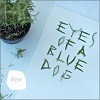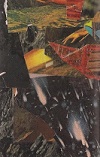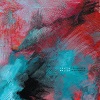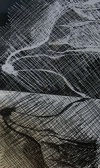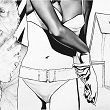 Michael Bailey’s Invisible Path provide some of the most thoughtful compositions to the young ((Cave)) catalog with the ‘Cloud Variations’ C39. Providing the service role left vacant by Roy Tatum’s Changeling, Bailey’s winding ambients reset the latest frame of noise on one hand (and it’s telling that I’m at a loss to recall the latest representatives, and not because they don’t exist), and drone on the other (countless “new agers” who came and went, leaving a lost generation to figure out what was meant to “go here”). Now only the software has changed, raising the glossy, high-def stakes for all involved. In the style of William Basinski, the two, sidelong couplets trade in divine tones while struggling with melodic consciousness. Harmonics abound, turning many utterances of a melody into one big run-on of bleary warm hum and long rhythmic cycles, equally imposed upon by the mash. Yet beyond this competent, considered core what elevates the album is the ornamentation of guitar harmonics, gongs, and string sounds which do not disturb the essence of weightlessness, but which stand this tonal miasma against the percolating relief of formal characters, as seemingly oblivious to the music being made, a psychoanalytical sketch about divergence and co-evolutions of thought which do more than just sound good, but do beg an audience and interlocutor in the most passive of ways. With art by Bailey on heavy J-cards. Recommended.
Michael Bailey’s Invisible Path provide some of the most thoughtful compositions to the young ((Cave)) catalog with the ‘Cloud Variations’ C39. Providing the service role left vacant by Roy Tatum’s Changeling, Bailey’s winding ambients reset the latest frame of noise on one hand (and it’s telling that I’m at a loss to recall the latest representatives, and not because they don’t exist), and drone on the other (countless “new agers” who came and went, leaving a lost generation to figure out what was meant to “go here”). Now only the software has changed, raising the glossy, high-def stakes for all involved. In the style of William Basinski, the two, sidelong couplets trade in divine tones while struggling with melodic consciousness. Harmonics abound, turning many utterances of a melody into one big run-on of bleary warm hum and long rhythmic cycles, equally imposed upon by the mash. Yet beyond this competent, considered core what elevates the album is the ornamentation of guitar harmonics, gongs, and string sounds which do not disturb the essence of weightlessness, but which stand this tonal miasma against the percolating relief of formal characters, as seemingly oblivious to the music being made, a psychoanalytical sketch about divergence and co-evolutions of thought which do more than just sound good, but do beg an audience and interlocutor in the most passive of ways. With art by Bailey on heavy J-cards. Recommended.
 ((Cave))’s own Rob and Ben form The Ether Staircase, whose murky, paranoid ‘Winning the Olympics’ pushes in directions of pataphysics with the same skill as Bailey pushes in the dimension of elegance. Across four or nine tracks titled more like inside jokes than any sort of interpretive legend, the boys build on low-tempo synthesizer horror like so many Carpenter apes in the last 5 years, but do so with an artful tact much like UW Owl and the other homebrews from the hibernative Phaserprone; though largely low in fidelity, the pair play with this aesthetic essence as well, punctuating the sonic fabric with bright, rendered shapes, surgical edits, and a sourcing practice which belies the dingy sheen which sits atop the signal. The tape opens and closes with an anti-dub sound (steady beats, whistles, shifters) which should be allowed to define the project, and help it crystallize much as early Sun Araw wobbled its way into the singular figure we find today. Art by Rob on heavy J-cards. Recommended.
((Cave))’s own Rob and Ben form The Ether Staircase, whose murky, paranoid ‘Winning the Olympics’ pushes in directions of pataphysics with the same skill as Bailey pushes in the dimension of elegance. Across four or nine tracks titled more like inside jokes than any sort of interpretive legend, the boys build on low-tempo synthesizer horror like so many Carpenter apes in the last 5 years, but do so with an artful tact much like UW Owl and the other homebrews from the hibernative Phaserprone; though largely low in fidelity, the pair play with this aesthetic essence as well, punctuating the sonic fabric with bright, rendered shapes, surgical edits, and a sourcing practice which belies the dingy sheen which sits atop the signal. The tape opens and closes with an anti-dub sound (steady beats, whistles, shifters) which should be allowed to define the project, and help it crystallize much as early Sun Araw wobbled its way into the singular figure we find today. Art by Rob on heavy J-cards. Recommended.
((Cave)) Recordings cassette
$5
HERE



